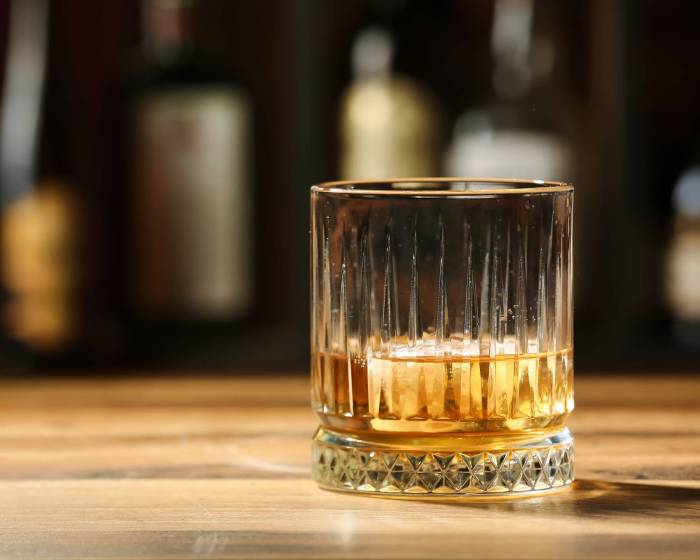American Whiskey Industry Faces Global Pressure as Tariffs and Demand Shifts Collide
Companies cut production and turn to flavoured spirits to manage excess inventory
2025-04-10

The U.S. whiskey industry is facing a critical moment shaped by a combination of geopolitical tensions, changing consumer habits, and economic imbalances. Although no new tariffs have yet been applied, the threat of a 50% duty from the European Union and escalating trade tensions with Canada are already reshaping market expectations and limiting sales strategies for American producers.
In 2018, the European Union imposed retaliatory tariffs on U.S. whiskey following trade measures by the Trump administration. While those tariffs were suspended in 2021, producers never fully regained confidence in the stability of the international trade environment. With Donald Trump back in office and signaling a tougher stance on trade, many U.S. whiskey producers are now leaving foreign sales out of their profit forecasts for the year. The impact of this uncertainty is compounded by developments in Canada, where some American whiskey brands have been pulled from store shelves. These actions have occurred despite the absence of formal tariffs, reflecting instead a market reaction to political rhetoric.
The current strain comes on top of an already weakening domestic market. After a decade of growth and a short-lived boost during the pandemic, sales of U.S. whiskey began to decline. According to data from IWSR, domestic sales volume dropped 1.2% in 2023 and another 2% in 2024. Although international sales held steady last year, they are expected to follow a downward trend if trade restrictions intensify.
This drop in demand coincides with a surplus of supply. Many distilleries increased production during the sector's boom years, banking on continued growth. Kentucky alone produced 3.2 million barrels in 2024 and now has over 14 million barrels in storage. Much of this whiskey was distilled years ago, based on demand projections that no longer align with current consumer behavior.
Producers are also facing new consumption patterns. Generation Z is drinking less alcohol than previous generations. The growing use of cannabis as an alternative to alcoholic beverages and the popularity of drugs like Ozempic, which suppress appetite and reduce alcohol cravings, are contributing to a shift in drinking habits. While not the sole cause of the industry's challenges, these changes are having an effect on overall sales.
Bourbon, by law, must be aged at least two years, and many distilleries age their product longer to improve quality. As a result, production decisions made years ago are now hitting a market that has cooled. Some producers are adapting by introducing new formats like flavored whiskies and canned bourbon-based cocktails. Others are choosing to let their stock age longer, hoping for a future rebound.
The situation could create a temporary opportunity for domestic consumers. If export markets close due to tariffs or weak demand, producers may be forced to lower prices in the U.S. to move inventory. But this scenario could also be manipulated by major distributors, who might raise retail prices despite lower wholesale costs.
Smaller distilleries are especially at risk. Unlike large corporations such as Brown-Forman or Diageo, they lack the financial reserves to weather extended downturns. Becky Harris, founder of Catoctin Creek and former president of the American Craft Spirits Association, noted that many small producers never fully recovered from the 2018 tariff round.
Beyond trade disputes with Europe and Canada, the industry also faces potential tariffs on imported materials like glass. Since U.S. production does not meet the full demand for bottles, any added costs from import duties could put further pressure on distilleries' margins.
The threat of a 50% tariff from the EU is especially concerning. The previous 25% duty caused U.S. whiskey exports to Europe to fall by around 20%. A higher tariff could have more drastic consequences and would likely shift market share to European-made spirits, especially Scotch whisky.
In response, Trump has threatened new tariffs of up to 200% on European alcoholic beverages, including wine, if the EU proceeds with its plans. His administration argues that these measures are necessary to protect U.S. industries, but industry leaders warn that they could lead to reduced consumer choice and higher prices.
Despite the mounting challenges, many in the sector still see bourbon as a symbol of American culture and craftsmanship. Producers are calling for institutional support and public backing to help the industry navigate a period of instability with no clear end in sight. The future of U.S. whiskey now depends on political decisions, consumer preferences, and how effectively the industry can adapt to rapidly changing market conditions.
Founded in 2007, Vinetur® is a registered trademark of VGSC S.L. with a long history in the wine industry.
VGSC, S.L. with VAT number B70255591 is a spanish company legally registered in the Commercial Register of the city of Santiago de Compostela, with registration number: Bulletin 181, Reference 356049 in Volume 13, Page 107, Section 6, Sheet 45028, Entry 2.
Email: [email protected]
Headquarters and offices located in Vilagarcia de Arousa, Spain.